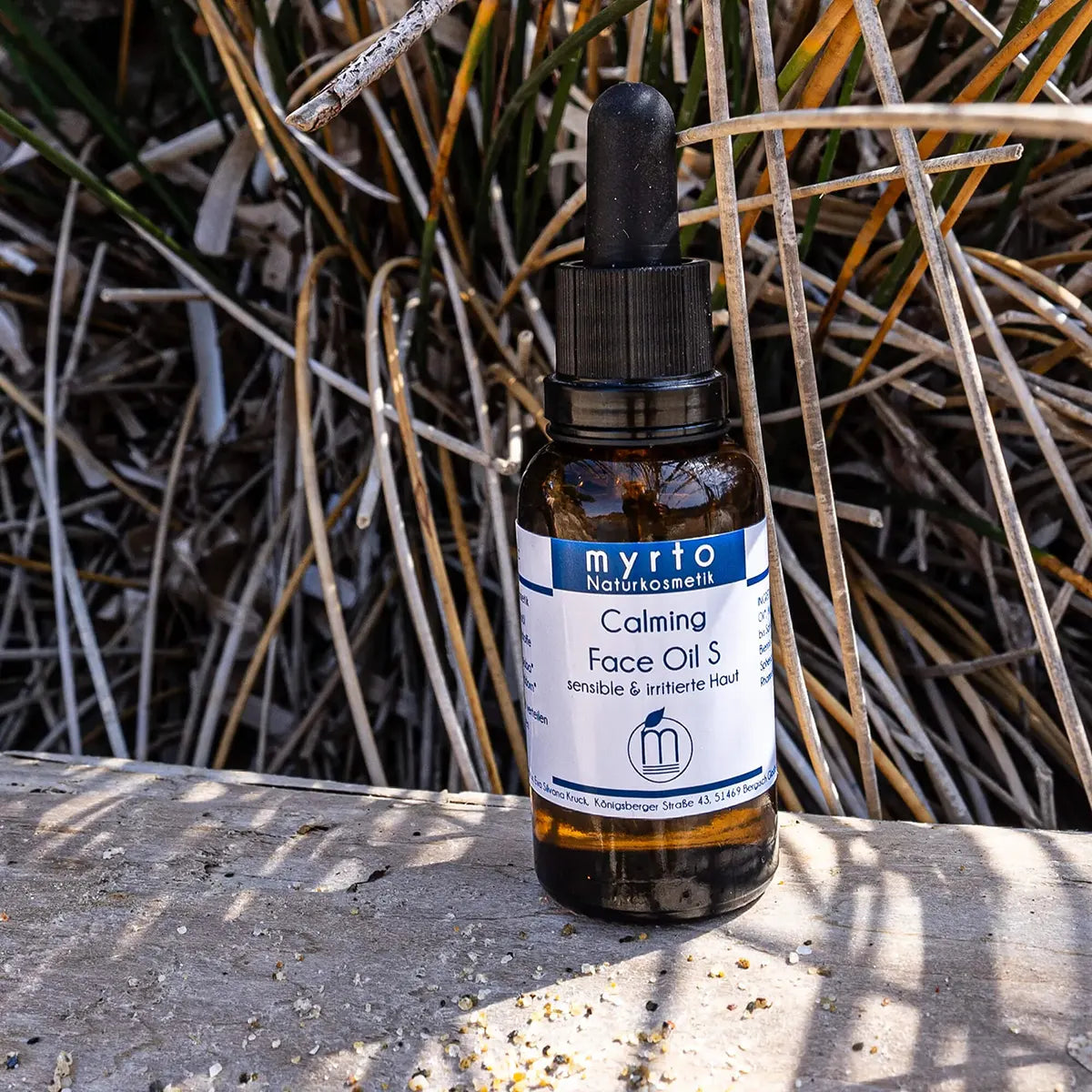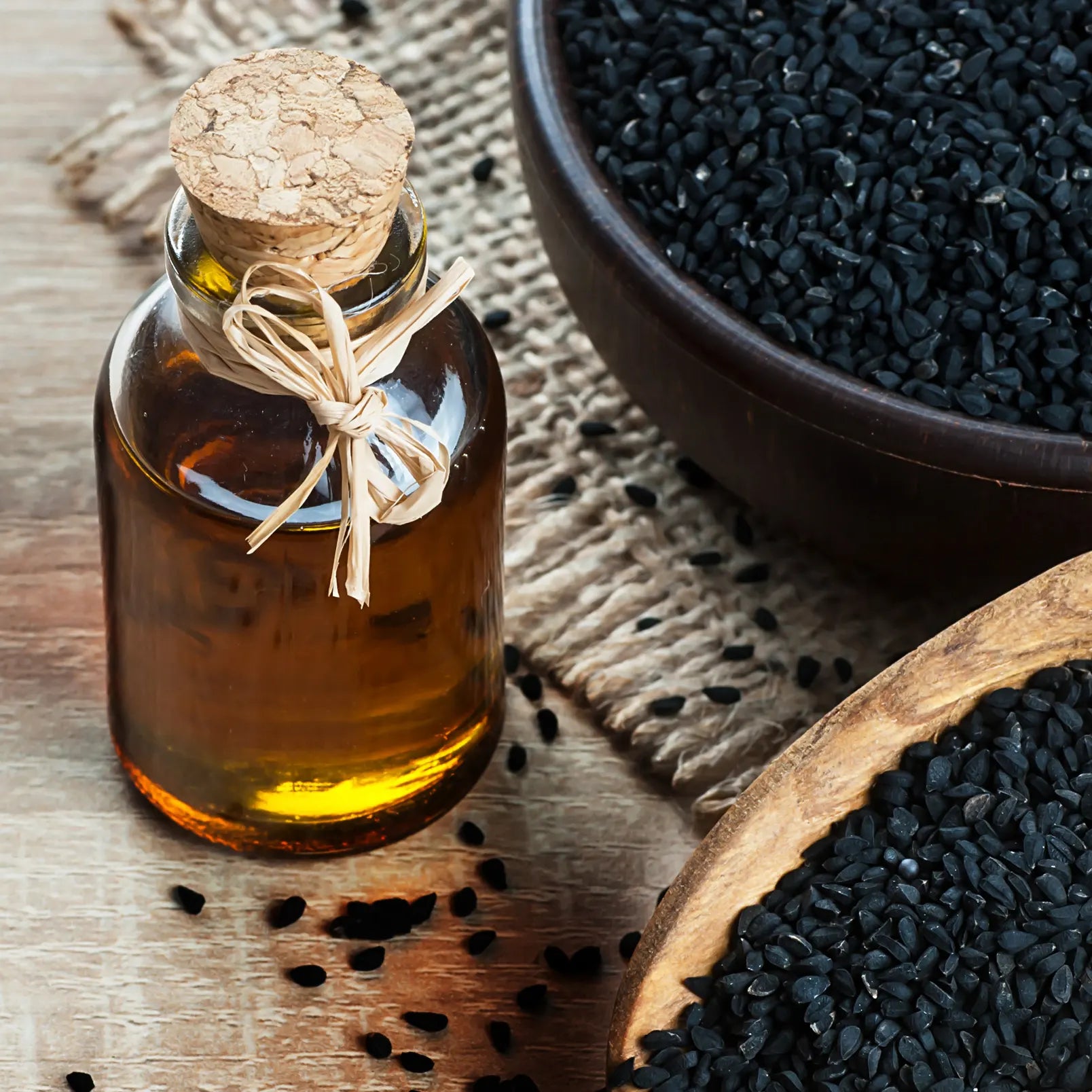
The rediscovery of facial oils - why they are so valuable
Facial oils under criticism
Facial oils have long been a favorite among natural cosmetics enthusiasts. Many dermatologists, however, are still skeptical about facial oils. The main points of criticism concern the comedogenic effect of some oils, which can promote blemishes and are unsuitable for oily or blemished skin, an alleged drying effect, and the lack of moisture in the skin when using oil alone. Last but not least, many facial oils contain unnecessary additives such as essential oils or fragrances, which have a potentially irritating effect, especially on sensitive skin. These can cause redness, itching or allergic reactions.
Natural, minimalist skin care
After years of misunderstandings about the alleged harmfulness of oils, we are now experiencing a rediscovery of facial oils. They are a strong trend and an integral part of every effective skin care routine - and for good reason: high-quality, native facial oils feel incredibly soft, enveloping and silky on the skin, as if you could hardly care for your skin more intensively.
They offer highly concentrated, minimalist and natural skin care that draws its full effect from the power of pure plant oils. High-quality facial oils contain neither preservatives nor emulsifiers, consistency agents or other unnecessary additives. There are suitable facial oils for every skin type - including oily skin, acne and rosacea - to optimally care for the skin and treat skin problems.
In this article, you will learn what benefits facial oils offer your skin, what is important in a high-quality facial oil and why the organic quality of the oils is so important.
What benefits do facial oils offer your skin?
-
Protection against moisture loss and strengthening the skin barrier
Facial oils help to strengthen the skin barrier and lock moisture into the skin. This is also known as an occlusive or locking effect. This protects against excessive moisture loss through the skin. However, facial oils do not provide moisture; instead, they minimize the natural evaporation process of water from the inside of the body through the outermost layer of skin. In dermatology, this is also known as TEWL (Trans Epidermal Water Loss). In their composition, facial oils are very similar to the skin's own lipids, which form the protective skin barrier. Vegetable oils such as pomegranate seed, hemp seed or evening primrose oil contain polyunsaturated omega-3 acids, which help strengthen the skin barrier.
-
vitamins & antioxidants
Facial oils contain natural vitamins, antioxidants and essential fatty acids that provide the skin with important nutrients. These ingredients contribute to cell renewal and the fight against free radicals. Free radicals are highly reactive molecules that accelerate skin aging, but can also cause damage to cells, proteins and even DNA. Antioxidant facial oils are not only highly effective cosmetically, they can even have medically proven healing effects. -
Anti-inflammatory & regenerating effect
Oils such as jojoba, argan or grape seed oil have anti-inflammatory properties and soothe irritated or highly sensitive skin conditions. They help reduce redness and relieve itching. Oils such as pomegranate seed, rosehip, hemp seed or evening primrose oil promote cell renewal. They accelerate the healing of scars and gradually fade pigment spots, resulting in a more even complexion and improved skin texture.
-
protection against skin-damaging environmental influences
Facial oils, which form a protective film on the skin, protect against fine dust or harmful microbial pollutants in the environment. Facial oils also offer natural skin protection in the sun, cold or drying wind. Magnolia bark and astaxanthin, for example, counteract light-induced skin aging (inflamm-aging). Karanja oil offers plant-based light protection against harmful UV radiation without affecting the body's production of vitamin D.
-
slow aging
Due to their high antioxidant and vitamin content, high-quality facial oils counteract the signs of skin aging such as fine lines and wrinkles. Plant oils with strong antioxidant properties such as pomegranate seed, sea buckthorn pulp, argan oil or astaxanthin have the ability to destroy cell-damaging free radicals and thus slow down the aging process of cells. They ensure that the skin feels smooth, promote elasticity and support cell renewal.
What is important in a high-quality facial oil
A facial oil that consists of a composition of various plant oils that work synergistically has decisive advantages over pure oils with only one ingredient, because the composition of several natural ingredients enables more balanced and versatile care. When choosing a high-quality facial oil, there are a few important factors that you should pay attention to:
-
purity and quality of the ingredients
A high-quality facial oil should consist of pure, cold-pressed plant oils. Cold pressing preserves the valuable nutrients such as vitamins, fatty acids and antioxidants, which serve as a protective shield for the plant against cell damage. Avoid oils that have been refined or extracted with chemical solvents, as these processes impair the quality and nutrient content. -
Free from synthetic additives and fragrances
High-quality facial oils do not contain synthetic fragrances, preservatives, mineral oils, silicones or emulsifiers. Perfumed oils can irritate the skin, especially if you have sensitive skin. Be careful of possible allergic reactions if your facial oil contains essential ingredients. Therefore, generally prefer products without essential oils in facial care. Important to know: High-quality, cold-pressed facial oils are not fragrance-neutral. Instead, they have their own natural smell, which can change during the maturation process. Depending on the growing region or climatic growing conditions, the specific scent can also vary slightly from batch to batch. -
Specific fatty acid pattern:
High-quality facial oils offer a balanced ratio of essential fatty acids such as linoleic acid (omega-6), oleic acid (omega-9) and linolenic acid (omega-3). The specific fatty acid pattern of a facial oil determines its suitability for your individual skin needs: whether a facial oil primarily strengthens the skin barrier, primarily stimulates cell renewal or has healing properties, soothes the skin and relieves inflammation. A balanced combination of different oils can achieve this balance better than a single plant oil.
-
synergistic effects of the active ingredients
Combining different oils creates synergies that enhance the effects of individual ingredients. For example, an oil with anti-inflammatory properties (such as argan or rosehip seed oil) can be enhanced by adding an antioxidant oil (such as pomegranate seed oil), resulting in more comprehensive skin care. Pure oils can be too heavy or too light, depending on your skin type. Synergistic compositions of different oils are designed to have a pleasant texture, absorb quickly, and not leave a greasy film on the skin. This is particularly beneficial if you are looking for a product that is suitable for daily use or that can be worn well under makeup. -
Non-comedogenic oils for oily and combination skin
If you have oily or blemish-prone skin, it's important to choose a facial oil that won't clog pores. Non-comedogenic facial oils, which typically contain high levels of jojoba, argan, grapeseed or squalane, are ideal for this. Oils like coconut oil or cocoa butter are problematic if your skin is prone to blemishes. -
Drying versus non-drying facial oils
Drying oils are quickly absorbed into the skin and do not leave a greasy feeling. They are light and particularly suitable for oily or combination skin as they do not clog the pores. Drying oils These oils have a high content of polyunsaturated fatty acids, especially linoleic acid, which can strengthen the skin barrier and have an anti-inflammatory effect. Non-drying facial oils are richer and absorb more slowly, which means they often leave a light film on the skin. They are particularly suitable for dry or mature skin as they provide intensive moisture and protect the skin barrier. These oils contain a high proportion of monounsaturated fatty acids such as oleic acid, for example in olive oil or avocado oil.
Why is organic quality so important for facial oils?
A high-quality facial oil should come from sustainable organic farming. Organic farming promotes sustainable farming methods that protect the environment. Fewer harmful chemicals are used that pollute soil and water sources. Organic farming also helps preserve biodiversity and protects nature from damage caused by monocultures and intensive farming. Buying organic products often supports fair labor practices and the cultivation of raw materials under ethical conditions, which has positive social and environmental impacts.
Conventionally grown plants used to extract oil can contain residues of pesticides, herbicides and other synthetic chemicals. These residues can migrate into the oil and cause irritation or allergic reactions in sensitive skin. Organic facial oils come from plants grown without the use of such harmful chemicals. They are therefore purer and more tolerable, especially for people with sensitive or problematic skin.
No genetically modified plants are used in the production of organic oils. GMOs are common in conventional agriculture and are often genetically modified to increase yields and make pest control easier. However, there are concerns about the long-term effects of GMOs on health and the environment. Organic facial oils, on the other hand, guarantee that they come from purely natural, unmodified plants.
Is there a washing-out effect from facial oils?
The term "washout effect" refers to the incorrect idea that certain plant oils can dissolve or displace moisture from the skin, leading to dehydration. An apparent drying effect from facial oils made from plant oils can only occur if used inappropriately. Plant oils cannot damage the skin barrier or wash out lipids from the barrier layer. To avoid drying out the skin, pay attention to the correct order in your daily care routine and use oils that are suitable for your skin. Facial oils are an extremely valuable part of care if you use them correctly:
Layer oils on a hydrating base : Always apply the oil as the last step in your skincare routine, after using a hydrating product (like a serum or moisturizer). The oil seals in moisture rather than pushing it out.
Consider your skin type: Use a facial oil that suits your skin type. Light oils such as jojoba oil, grape seed oil, argan oil or squalane are good for oily skin or combination skin with blemishes. Oils such as olive, avocado or macadamia oil, on the other hand, are more suitable for dry skin.
Quality of the oil: Make sure to use high-quality, cold-pressed, non-comedogenic and organically produced oils for maximum effectiveness.





